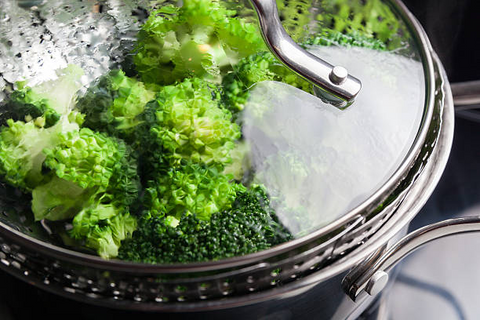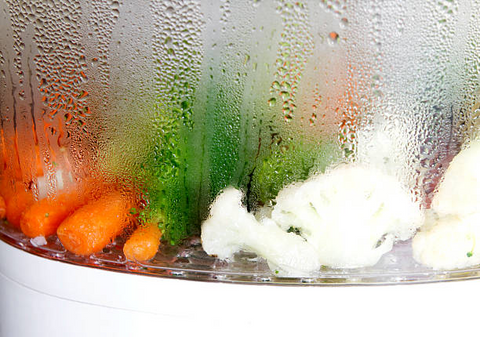Steam cooking is a culinary technique that utilizes steam to cook food. It involves placing food in a steam-filled environment, either within a specialized steamer or using makeshift methods like a pot with a lid. This method has gained popularity due to its ability to preserve nutrients, enhance flavors, and promote healthier cooking. In this article, we delve into the intricacies of steam cooking and explore its benefits compared to other conventional cooking methods.

What is Steam Cooking?
Steam cooking involves the use of hot steam to cook food. Unlike boiling or frying, where food comes into direct contact with water or oil, steam cooking relies on the indirect transfer of heat. As water vapor condenses on the food's surface, it gently cooks it, retaining moisture and nutrients. This gentle cooking process helps preserve the food's natural flavors and textures, resulting in dishes that are both delicious and nutritious.

Benefits of Steam Cooking
- Retained Nutrients
Steam cooking minimizes nutrient loss compared to other methods like boiling, where nutrients leach into the water. The gentle heat of steam ensures that vitamins and minerals remain intact, promoting healthier eating habits.
- Enhanced Flavor
The gentle nature of steam cooking allows food to retain its natural flavors without the need for excessive seasoning. This results in dishes that are not only healthier but also more flavorful, as the true essence of the ingredients shines through.
- Reduced Fat Intake
Unlike frying, which requires the use of oil, steam cooking eliminates the need for added fats. This makes it an excellent choice for those looking to reduce their fat intake without compromising on taste or texture.
- Preserved Texture
Steam cooking helps retain the natural textures of food, especially delicate items like vegetables and seafood. Unlike boiling, which can lead to sentimentality, steamed dishes maintain their crispness and bite, providing a satisfying dining experience.
- Versatility
Steam cooking is incredibly versatile and can be used to prepare a wide range of dishes, from vegetables and grains to proteins and desserts. With the right equipment, such as a steamer basket or steam oven, you can experiment with various recipes and cooking techniques.

Comparison with Other Cooking Methods
Steam Cooking vs. Boiling
- Steam cooking is a more gentle cooking method than boiling, which can damage food and lose nutrients.
- Steam cooking retains more nutrients than boiling, as the steam doesn't come into direct contact with the food.
Steam Cooking vs. Grilling
- Steam cooking is a lower-fat cooking method than grilling, which requires oil to prevent sticking.
- Steam cooking retains more moisture than grilling, which can dry out food.
Steam Cooking vs. Roasting
- Steam cooking is a more even cooking method than roasting, which can lead to hotspots and undercooked areas.
- Steam cooking retains more nutrients than roasting, as the high heat can damage food.
Conclusion
Steam cooking is a healthier and flavorful way to cook a variety of foods. Its numerous benefits, including nutrient retention, even cooking, and moisture retention, make it a popular choice for home cooks and professional chefs. When compared to other cooking methods, steam cooking stands out for its gentle and efficient cooking process. So why not give steam cooking a try and experience the power of steam for yourself?

